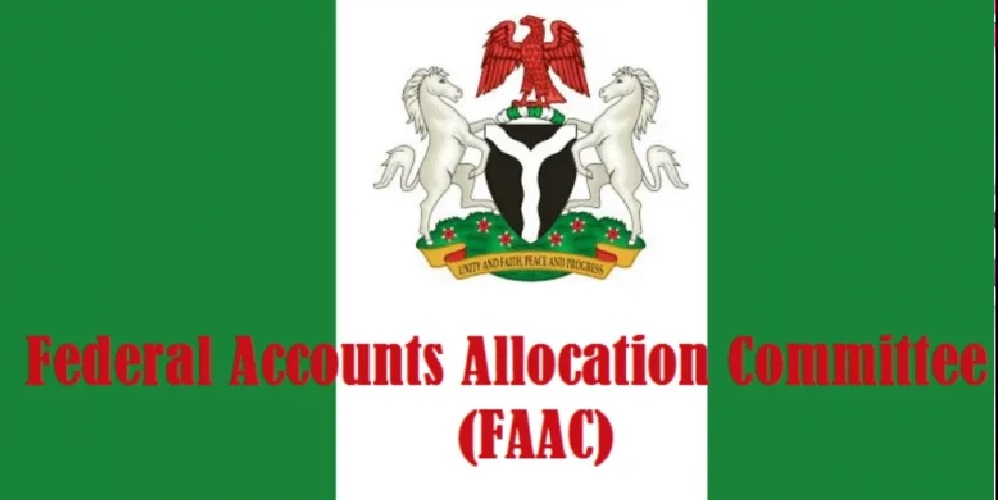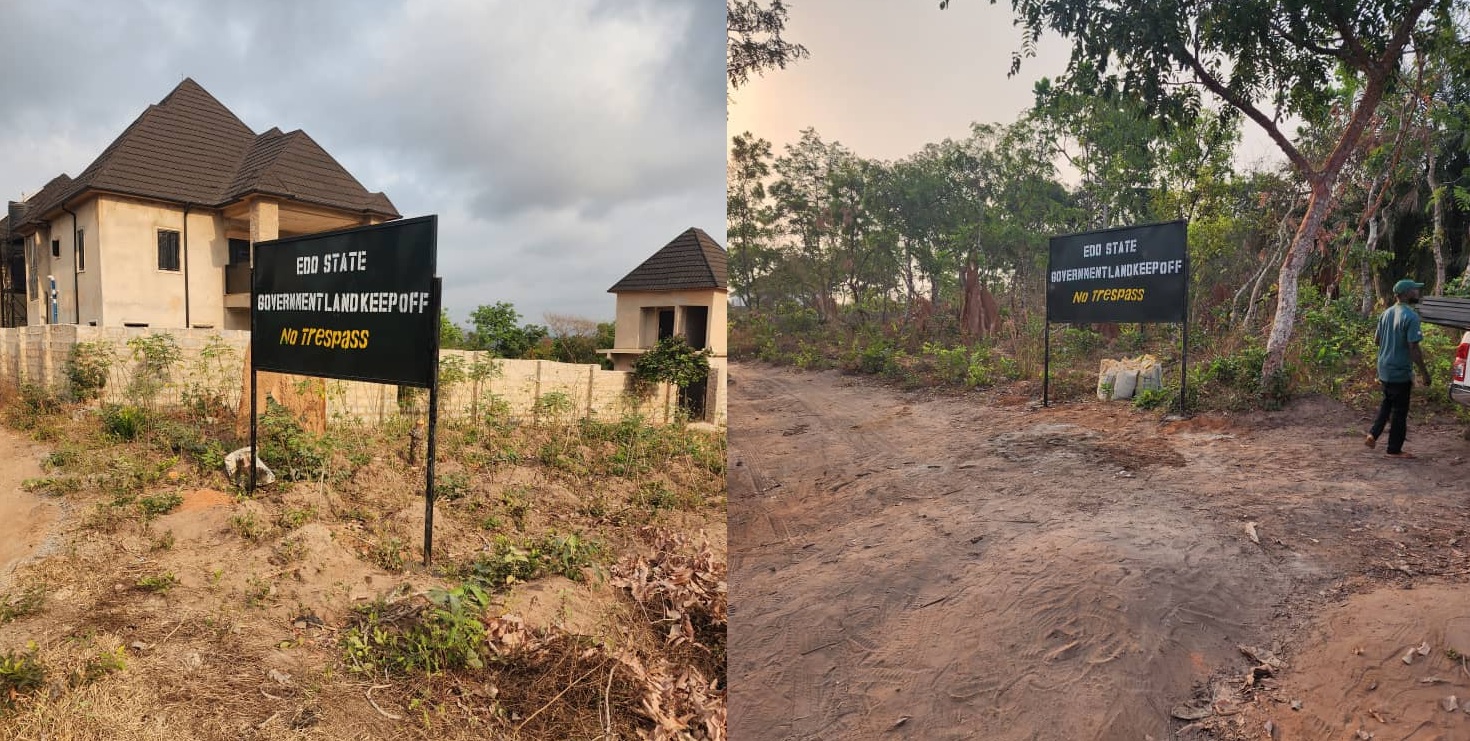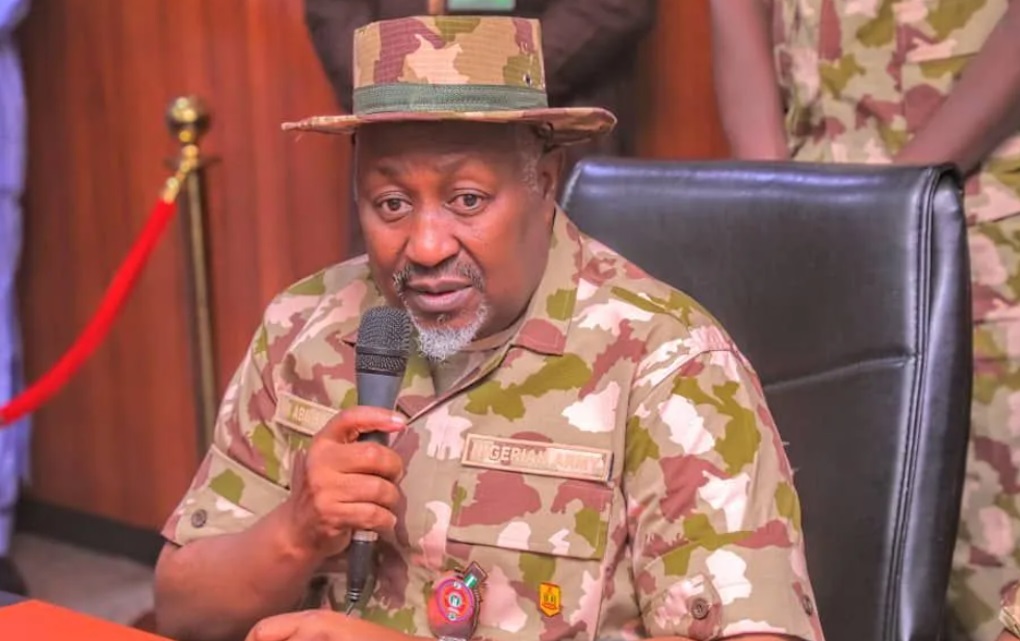News
FG, states, LGs share N1.36tn in July as revenue hit N2.61tn

The Federation Account Allocation Committee says it shared a total sum of N1.36tn to the three tiers of government as Federation Allocation for the month of July 2024.
At its August 2024 meeting chaired by the Minister of Finance and Coordinating Minister of the Economy, Mr Wale Edun, the amount shared was out of a gross total of N2.61tn.
A statement signed by the Finance Ministry, Director, Information and Public Relations, Mohammed Manga on Friday, said the Federal Government received its share of N431.1bn, the States received N473.5bn, while the Local Government Councils got N343.7bn.
It explained that Oil and Gas Royalty, Petroleum Profit Tax, Value Added Tax, Import Duty, Electronic Money Transfer Levy and External Tarrif levies increased significantly, while Companies Income Tax recorded a decrease. Excise Duties increased only marginally.
The communique read, “From the stated amount (N2.61tn) inclusive of Gross Statutory Revenue, Value Added Tax, Electronic Money Transfer Levy, Exchange Difference, and N13.647 Billion from Solid Mineral Revenue, the Federal Government received N431.079 Billion, the States received N473.477 Billion, the Local Government Councils got N343.703 Billion, while the Oil Producing States received N109.816 Billion as Derivation, (13 per cent of Mineral Revenue).
“The sum of N99.756 Billion was given for the cost of collection, while N109.816 Billion was allocated for Transfers Intervention and Refunds.”
The communique indicated that the Gross Revenue available from the Value Added Tax for the month of July 2024 was N625.33bn as against N562.69bn distributed in the preceding month, resulting in an increase of N62.64bn.
“From that amount, the sum of N25.01bn was allocated for the cost of collection and the sum of N18.01bn given for Transfers, Intervention and Refunds.
“The remaining sum of N582.31bn was distributed to the three tiers of government, of which the Federal Government got N87.37bn, the States received N291.15bn and Local Government Councils got N203.81bn.”
Manga said the Gross Statutory Revenue of N1.37tn received for the month was lower than the sum of N1.43bn received in the previous month by N45.52bn.
“From the stated amount, the sum of N73.959bn was allocated for the cost of collection and a total sum of N1.14tn for Transfers, Intervention and Refunds.
“The remaining balance of N161.593 Billion was distributed as follows to the three tiers of government: Federal Government got the sum of N58.55bn, States received N29.69bn, the sum of N22.89bn was allocated to LGCs and N50.46bn was given to Derivation Revenue (13 per cent Mineral producing States).
“Also, the sum of N19.6bn from Electronic Money Transfer Levy was distributed to the three tiers of government as follows: the Federal Government received N2.82bn, States got N9.41bn, Local Government Councils received N6.59bn, while N0.784bn was allocated for Cost of Collection.”
The Communique further disclosed the sum of N581.71bn from Exchange Difference, which was shared as follows: Federal Government received N276.11bn, States got N140.02bn, the sum of N107.97bn was allocated to Local Government Councils, N57.58bn was given for Derivation (13 per cent of Mineral Revenue).”
It further disclosed the sum of N13.647bn from Solid Mineral Revenue, which was shared as follows: Federal Government got N6.255bn, the States received the sum of N3.17bn, Local Government Councils received N2.446bn, while the sum of N1.77bn was allocated to Deviation (13 per cent of Mineral Revenue).
According to the Communique, “The total revenue distributable for the current month of July 2024 was drawn from Statutory Revenue of N161.59bn, Value Added Tax of N528.31bn, N18.82bn from Electronic Money Transfer Levy, N581.71bn from Exchange Difference and the sum of N13.65bn, bringing the total distributable amount for the month to N1.358.1tn.
“The balance in the Excess Crude Account as at August 2024 stands at $473,754.57.”
While welcoming the Federation Account Allocation Committee the minister commended the committee for their show of support especially during the recent protest.
He urged them to continue to support the efforts of the Federal Government in its determination to transform Nigeria’s economy for the future of our nation and further commended Tinubu, “for signing the National Minimum Wage Act into law, adding that its implementation will be of immense benefit to all Nigerians.”
News
Video/Photos: EdoGIS blows hot warns land grabbers, signposts govt acquired lands

The Edo Geographic Information Service (EDOGIS) has warned against the activities of land grabbers and encroachers in the Auchi area, saying there will be consequences over such illegal activities.
In a video also, the government agency captured areas demarcated as government acquired lands.
The agency last week mounted signposts indicating the perimeter of the government acquisition in old and new GRA against the backdrop of repeated encroachment into the area by unknown members of the community in Auchi.
In all, there were signposts indicating “Edo State Government Land, Keep off, No Trespass” placed at very strategic locations around the perimeter of the Government Acquisition.
The exercise also marks the 2nd phase of the Action Plan put together by Edo state government to forestall further encroachment.
The first phase involved a Stakeholders meeting with the leaders of Auchi Community and the traditional rulers with government officials.
The entire area measuring 400 Hectares which remains under Government Acquisition.
According to the Edo State Land Administration and GIS Law 2024, section 49 (10), any person who trespasses, sells, trades, develops or by any means disposes of any land duly acquired by the Government to a third party without due authourization from the relevant Government Authourity, commits an offence and shall be prosecuted according to law and or face outright demolition of such properties if any.
According to a statement by the media officer of Edo GIS, Muyiwa Akinsanya, the government will soon begin profiling of such illegal structures on government Acquisition on lands in Auchi and other parts of the state.
He warned the general public from acquiring properties from land grabbers, saying the law would someday take its proper course as ignorance was no excuse under the law.
Watch video below:
https://www.instagram.com/reel/DGctlgdKo6J/?igsh=MTc4MmM1YmI2Ng==
See photos below:





News
Residents express concern over return of Turji, as DHQ officials keep mum

The Defence Headquarters has remained silent following the return of terrorist kingpin, Bello Turji, which has sparked panic among residents of Sokoto State.
In separate operations conducted in January 2025, the military announced the killing of Aminu Kanawa, the second-in-command to Turji, along with 31 other fighters and Turji’s son.
The DHQ also reported that troops inflicted serious injuries on some of Turji’s close allies, including his younger brother.
The military stated that Turji fled during one of the operations, calling him a coward for abandoning his son and fighters during the gun battle.
However, a member of the Sokoto State House of Assembly representing Sabon Birni Local Government, Aminu Boza, told journalists last week that Turji had resurfaced in Sokoto State and imposed a N25m levy on villages.
He also revealed that Turji had set up camp in a forest in the Isa Local Government Area.
“Bello Turji is currently in the Isa and Sabon Birni axis of Sokoto. He has even imposed a N25m levy per village in some communities,” Boza said, adding that Turji had been collecting taxes from the local population.
Turji’s re-emergence has heightened fears among residents who have long suffered from the activities of bandits in Sokoto and neighboring areas.
Efforts to reach the Director of Media Operations, Maj. Gen. Markus Kangye, for comments on what the military is doing to allay residents’ fears proved abortive.
Calls and messages to his line from last Thursday through Sunday had yet to be answered at the time of filing this report.
Meanwhile, Sokoto State Governor, Dr. Ahmed Aliyu, has reiterated his administration’s unwavering commitment to tackling insecurity in the state.
Speaking on Saturday at a security summit organised by the Movement for Social Justice in collaboration with the Sokoto State Government, Aliyu emphasised the need for accountability and transparency in security management.
He acknowledged the widespread security challenges facing Nigeria, which have significantly hindered the country’s economic, political, and social development.
According to him, every region in the country faces distinct security threats, with Sokoto and other North-West states grappling with banditry, kidnapping, and cattle rustling—especially in the eastern part of the state.
Governor Aliyu stated that upon assuming office, his administration swiftly implemented decisive measures to improve security through collaboration with conventional security agencies.
“Before we came into office, several communities were under the control of bandits, who dictated the terms of daily life to residents,” he said.
To address the situation, the governor outlined several proactive steps taken by his administration, which includes, “restoring security allowances previously owed to security personnel and procuring and distributing over 140 Buffalo and Hilux vans to security agencies for enhanced surveillance.”
“Providing motorcycles to the Department of State Services to improve intelligence gathering, sharing, and surveillance as well as upgrading DSS tracking equipment from 2G and 3G to 5G technology.”
Furthermore, Governor Aliyu highlighted the establishment of the Sokoto State Security Guard Corps to complement conventional security forces.
The corps, he said, had been equipped with Hilux vans, 700 motorcycles, and fully operational offices in the 13 local governments most affected by insecurity.
Additionally, the government has facilitated the full operationalisation of the Sokoto State Air Force Base by providing essential facilities, including hangars and other logistical support, to strengthen aerial surveillance and neutralise bandit hideouts.
Governor Aliyu reaffirmed his administration’s commitment to promptly addressing the needs of security agencies, emphasising that these efforts had led to a noticeable reduction in banditry.
He noted that security forces have successfully repelled several attacks, demonstrating the effectiveness of the measures put in place.
“Our administration is fully committed to ensuring the safety of Sokoto State. We are prepared to spend every last kobo in the state’s account to protect our people,” he declared.
Credit: PUNCH
News
We are achieving success as insecurity in the Northwest is diminishing – Defence Minister

Alhaji Muhammed Badaru Abubakar, Nigeria’s Minister of Defense, has reported a considerable improvement in the security situation in the Northwest and north-central regions of the country.
He ascribed this positive development to persistent and coordinated military actions against banditry, particularly in the states of Zamfara, Sokoto, Niger, Katsina, and Kaduna, where security challenges have been notably severe.
Speaking to journalists in Birnin Kudu, the headquarters of Birnin Kudu Local Government Area in Jigawa State, the minister reaffirmed the federal government’s commitment to completely eradicating insurgency before the year ends.
According to him, various stakeholders—including opinion leaders, civil society organizations (CSOs), and local residents—have acknowledged a noticeable reduction in terrorist and bandit activities.
“From the feedback we are receiving, people across the affected areas are confirming that the security situation has improved significantly. However, despite these positive developments, we remain committed to building on these achievements,” he said.
He further emphasized that the government is prioritizing adequate logistical support for the armed forces to ensure they have all necessary resources to maintain and enhance security efforts throughout the year.
-

 News21 hours ago
News21 hours agoREVEALED! Gov Fubara Accused of Paying N4.8Bn Monthly to Ikenga Ugochinyere
-

 News16 hours ago
News16 hours agoEx-UFC Champion, Adesanya replies critics
-

 News15 hours ago
News15 hours agoBabangida’s Book is filled with distorted facts, collection of lies, says Dele Farotimi
-

 News21 hours ago
News21 hours agoHow CBN Spent $8bn On Naira Defence Against Dollar At FX Market
-

 News21 hours ago
News21 hours agoWhy Buhari govt was shoved aside – IBB
-

 News15 hours ago
News15 hours agoSaudi Arabia donates 100 tonnes of dates to Nigeria as fasting approaches
-

 News23 hours ago
News23 hours agoThai lady arrested at Lagos airport with boxes of illicit drug consignments
-

 News21 hours ago
News21 hours agoKill your 2027 election, PDP, LP chieftains advise Atiku







